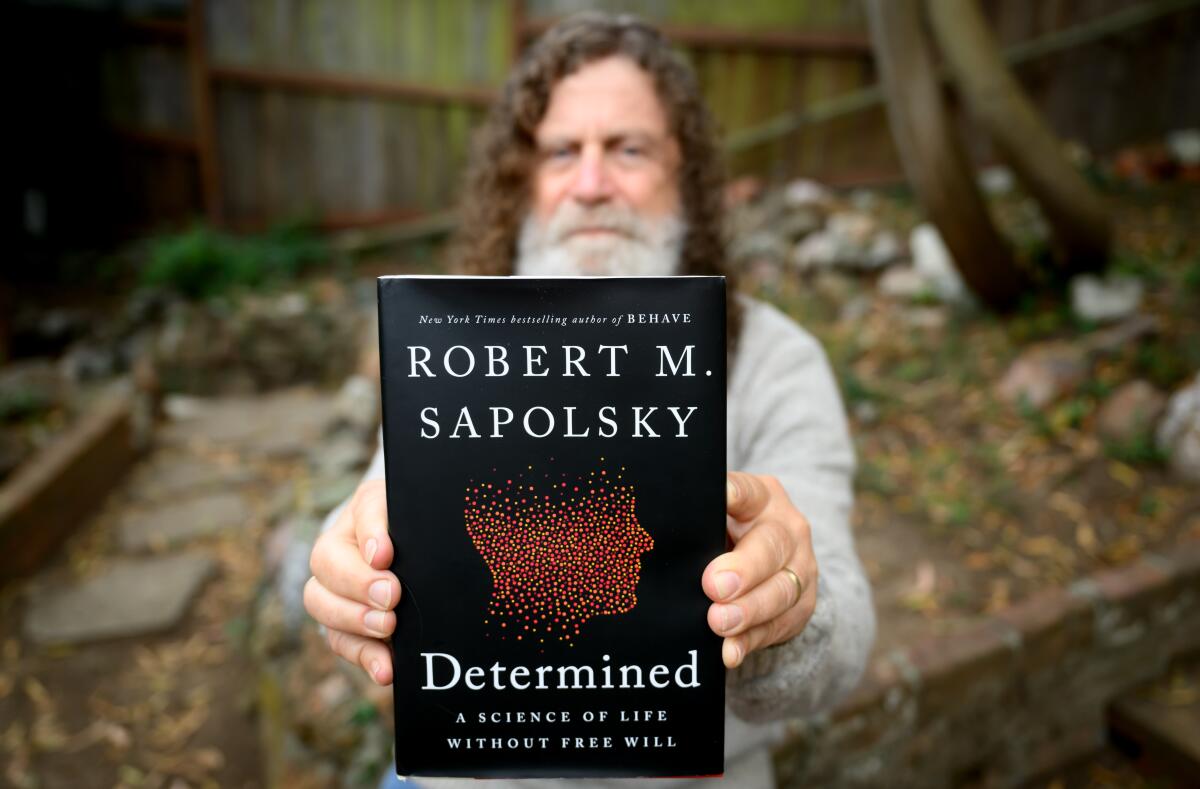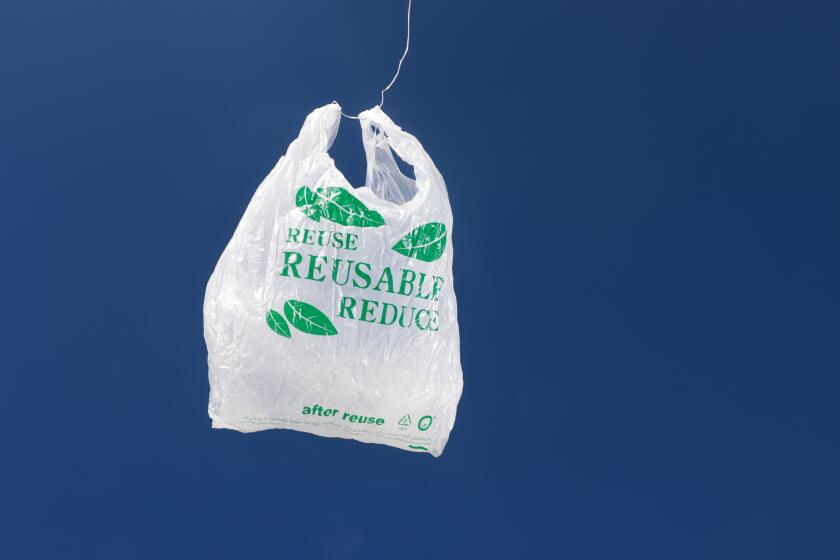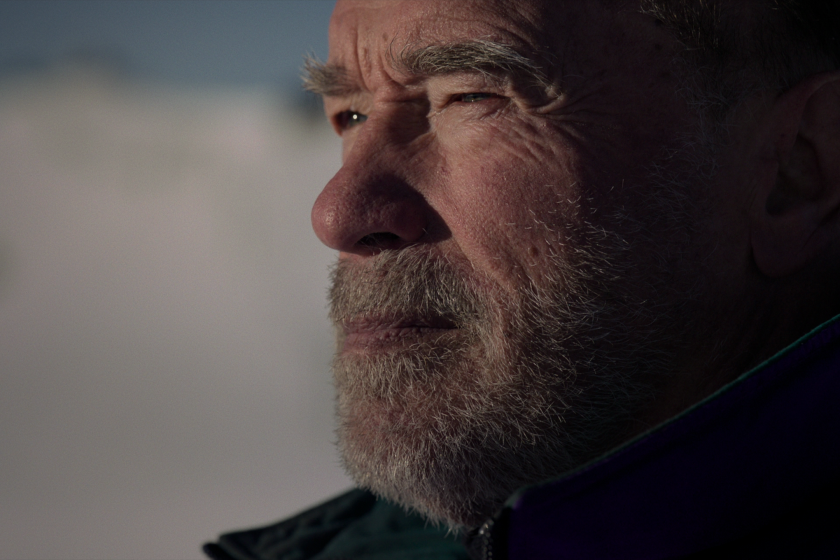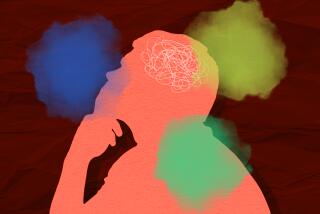Stop myself from shopping? I can’t! I have no free will

- Share via
Finally, a scientist who studies human behavior has said the quiet part out loud: The idea that people have free will is a myth.
In his new book, “Determined: A Science of Life Without Free Will,” Stanford University neurobiologist and MacArthur “genius” grant winner Robert Sapolsky contends that almost all human behavior is the result of a complex of neurochemical influences beyond our control.
Of course, we have no free will! Every person on the planet, save otherworldly ascetics, could tell you that.
You may think you chose to read this, but Stanford scientist Robert Sapolsky would disagree. He says virtually all human behavior is beyond our conscious control.
It’s why we eat the second piece of cake. It’s why we eat the first piece of cake. It’s why my closet is filled with too many expensive handbags (although I do love them all). Years ago, when I saw a photo in a magazine of the actress Blake Lively wearing a fabulous if ridiculously expensive pair of Christian Louboutin shoes, I went to Barneys and bought them. (And it’s why I’m glad Barneys, the ultimate temple of temptation, is now closed.)
It’s why I stay up too late watching my favorite movie, “The Constant Gardener,” one more time on TV. (I also have no control over the fact that “The Constant Gardener” is my favorite movie.)
I know humans have ravaged the environment with overuse of fossil fuels and plastic trash, yet I still buy water in plastic bottles and drink it during meetings with the anti-plastic editorial board members and I know everyone is thinking, “Why is she still drinking water out of a plastic bottle?” I’ve acquired plenty of those metal canisters that people tote around so smugly. I just can’t make myself use them. That’s out of my control too.
California’s pioneering anti-plastic law hasn’t delivered on its promises to reduce reliance on disposable grocery sacks. It’s time to adopt tougher legislation.
None of us mean to do something we think we shouldn’t do, whether it’s spending too much money, overeating or destroying the Earth. And sometimes we do seem to overcome the allure of indulgence or sloth. I can’t tell you how many times I have wrestled with myself to go to the gym at the end of the workday. Sometimes I prevail and am rewarded with a nearly empty gym at my disposal. Sometimes I fail and brood over the missed workout — as I search for another movie to watch on TV.
And when I say I will turn in the draft of an article to my editors at noon, I sincerely believe I am going to do that. I am in as much misery as they are when noon becomes 12:30 p.m. which becomes 1:30 p.m.
An L.A. Times investigation uncovering the movie star’s sexual misconduct ran just days before he was elected California governor in 2003. Here’s the story of one of the main reporters.
Sapolsky has spent more than four decades studying humans and primates. His book focuses on humans, but he has found that many of the same neurochemical processes that happen in humans occur in nonhuman primates as well. I could have told him that all the dogs and cats I’ve ever known do not have free will either — and, unlike most humans, have no guilt over it. When my niece’s pug, Bowie, chews on the wooden leg of a coffee table — or decides to go to the bathroom on a rug in the house — and gets reprimanded — he looks up at you with big eyes and his head cocked to one side as if to say, “What’d I do?”
One outcome of believing we have no free will is that, like Bowie, some of us won’t care what we do. That could lead to irresponsibility beyond eating too much.
And it also means that people who do horrific things (like killing someone) might be treated differently and punished less severely. Sapolsky told the L.A. Times that he hopes his book, based on his research and others’ work, increases compassion. Perhaps we will view differently a violent criminal who has an early history of trauma that forever changed their neurochemical makeup.
Frankly, I will never stop fighting my lack of free will. I had no choice but to write this piece. (It was my idea, not an editor’s.) But I came close to making the deadline.
More to Read
A cure for the common opinion
Get thought-provoking perspectives with our weekly newsletter.
You may occasionally receive promotional content from the Los Angeles Times.













